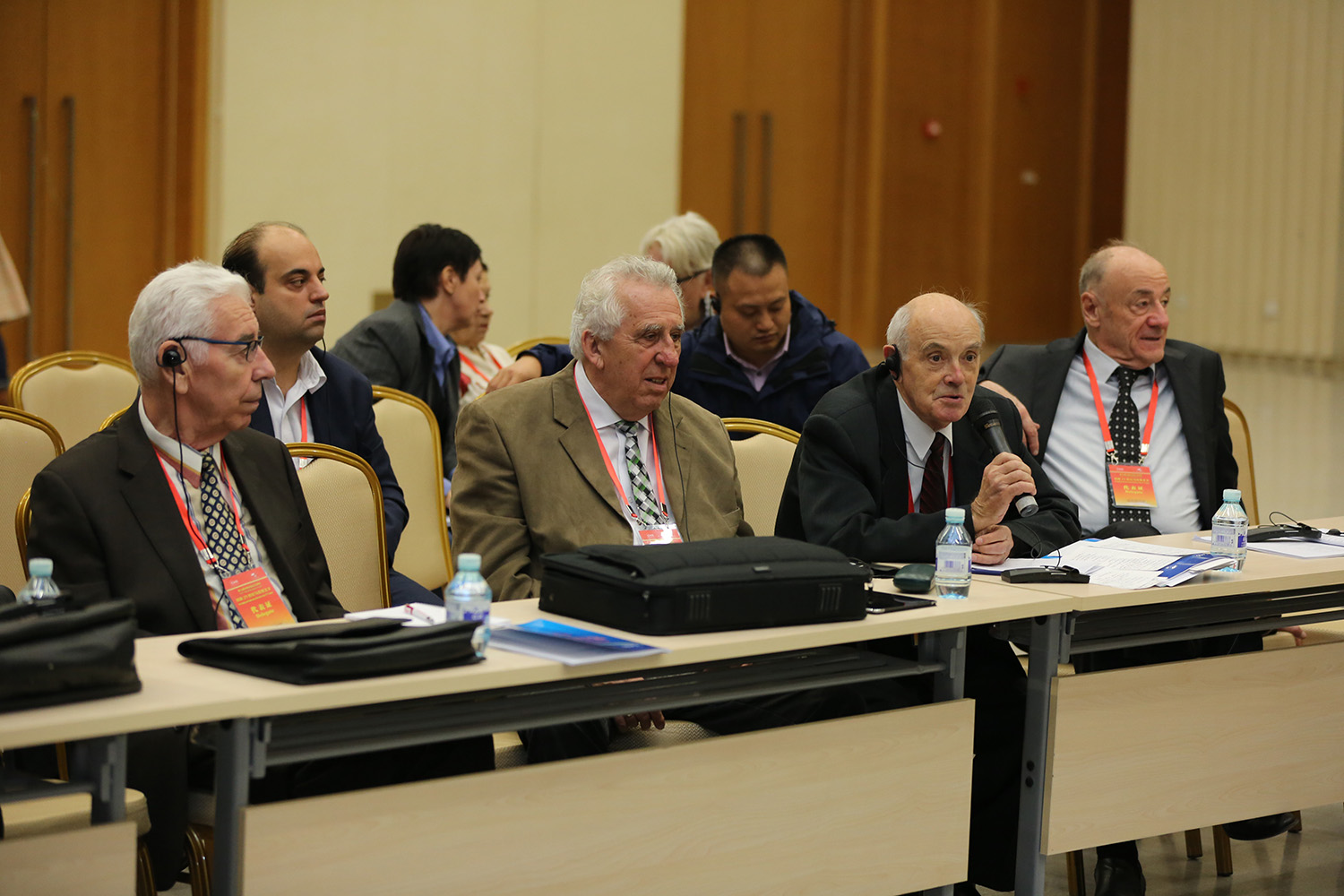Academics praise China’s socialist experience at forum

A scene of the seventh World Socialism Forum
At a recent forum, scholars from China and abroad spoke highly of the nation’s experience in developing and innovating Marxism, indicating that socialism with Chinese characteristics is beneficial to world development.
More than 300 scholars gathered in Beijing from Oct. 21 to 22 for the seventh World Socialism Forum, where they discussed theoretical and practical issues facing Marxism in the 21st century based on latest developments of the world political and economic situation, as well as socialism with Chinese characteristics.
In his keynote speech, President of the Chinese Academy of Social Sciences (CASS) Wang Weiguang said that the new governance concepts, ideas and strategies proposed by the Communist Party of China (CPC) have broken new ground for Chinese Marxism in the 21st century.
Socialism with Chinese characteristics is part of world socialism, and the Sinicized Marxism also belongs to Marxism in the 21st century, said Yu Hongjun, executive deputy party secretary of Peking University and dean of the School of Marxism at the university.
Under the leadership of the CPC, China certainly will realize the “Two Centenary Goals:” to finish building a moderately prosperous society in all respects by 2021 and to turn China into a modern socialist country that is prosperous, strong, democratic, culturally advanced and harmonious by 2049, Yu said.
This will be a creative development of the Chinese path to Marxism in the 21st century and a major contribution to human exploration of an ideal society, Yu added.
Egon Krenz, a German politician and former general secretary of the Socialist Unity Party of Germany, quoted a statement by Ernst Thälmann, a former leader of the Communist Party of Germany, on the occasion of the founding of the CPC: “All humanity focuses its attention on China. The most densely populated and time-honored civilization is finally free from the shackles that were placed upon it by imperialists for a century.”
Thälmann’s words are still applicable to China today, Krenz said, adding that any country seeking to realize socialism cannot afford to neglect China’s experience.
Mauro Alboresi, secretary of the Italian Communist Party (PCI), said the PCI is sure that Chinese experience has provided and will continue to provide new scientific and theoretical value to socialist transformation.
Agnaldo dos Santos, a professor from Sao Paulo State University in Brazil, offered his assessment of socialism’s progress in Laos, noting that the country has learned from the advanced experience of socialism with Chinese characteristics.
Santos pointed to the need to learn and apply fundamental theories of Marxism-Leninism creatively and formulate policies for national development based on actual conditions, adhering to truth and regarding practice as the sole criterion for testing truth.
Peace and development remain the theme of this era, but an unreasonable political and economic order is undermining the peace of the international community, said Zhao Keming, former political commissar and admiral at National Defense University. The new type of financial imperialism calls for strong vigilance and effective countermeasures, he added.
In his closing remarks, Zhang Quanjing, former minister of the Organization Department of the CPC Central Committee, quoted what Lenin said a century ago: “Capitalism has grown into a world system of colonial oppression and of the financial strangulation of the overwhelming majority of the people of the world by a handful of ‘advanced’ countries.”
“We are not allowed to be captivated by financial imperialism. Instead, we should perceive the essence through the appearance. This is what makes Marxist dialectics great,” Zhang said.
Financial crises have accelerated the collapse of the world system built by financial imperialists, and the trend is irreversible, he added.
The seventh World Socialism Forum gathered more than 100 foreign scholars from 36 countries, including left-wing scholars from Asia, Africa, Latin America, Europe and America, as well as academics from socialist countries other than China and 16 communist organizations.
The first World Socialism Forum was held in 2004 and the second in 2008. After the third session in 2012, it became an annual event. Formerly held by a world socialism research center under CASS, the forum was elevated to the academy level at the seventh session.
Zhang Junrong is a reporter at the Chinese Social Sciences Today.

 PRINT
PRINT CLOSE
CLOSE